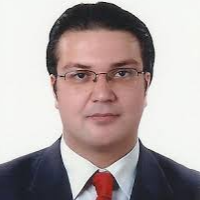
O. Tolga Altinoz
Work place: Ankara University, Department of Electrical and Electronics Engineering, Ankara, Turkey
E-mail: taltinoz@ankara.edu.tr
Website:
Research Interests: Computer systems and computational processes, Evolutionary Computation, Computer Architecture and Organization, Information Systems, Data Structures and Algorithms, Combinatorial Optimization, Models of Computation
Biography
O. Tolga Altinozwas born in 1981. He received the B.E. degree in Electrical and Electronics Engineering from the Baskent University, Ankara, Turkey, in 2003, and the MSc degree in Electrical and Electronics Engineering from Hacettepe University, Ankara, Turkey in 2010. He is currently pursuing the Ph.D. degree with the Department of Electrical and Electronics Engineering, Ankara University, Ankara, Turkey. His current research interests include evolutionary computation, optimization, control systems, power electronics, and biomedical systems.
Author Articles
Optimal PID Design for Control of Active Car Suspension System
By O. Tolga Altinoz A. Egemen Yilmaz
DOI: https://doi.org/10.5815/ijitcs.2018.01.02, Pub. Date: 8 Jan. 2018
This research is based on the determination of the parameters of the PID and fractional-order PID controllers designed for quarter-car suspension system. Initially, without considering the active suspension structure, the performance of the passive suspension system under different wheel load index is presented by using the transfer function of the system. Then, by adding a wheel-load, the classical PID controller is designed and applied to the current controlled hydraulic actuator as a part of active suspension system. The parameters of this controller are determined by three heuristic optimization algorithms; Particle Swarm Optimization (PSO), Differential Evolution (DE) and Gravitational Search Algorithm (GSA). As the second part of this study after evaluating the performance of classical PID controller, fractional-order PID controller is designed and applied to the problem to improve the performance of the classical PID controller. Similarly, the parameters of this controller are also obtained by using the same optimization algorithms. In the paper, for modeling the road, instead of sinusoidal (road with hill) or random changes, a saw tooth signal is preferred as a relatively harder condition. Implementation results are showed that the performance of the fractional-order PID controller is much better that PID controller and also instead of relatively complex and expensive controller, it is possible to use fractional-order PID controller for the problem.
[...] Read more.A Comparison of Crowding Differential Evolution Algorithms for Multimodal Optimization Problems
DOI: https://doi.org/10.5815/ijisa.2015.04.01, Pub. Date: 8 Mar. 2015
Multimodal problems are related to locating multiple, redundant global optima, as opposed to single solution. In practice, generally in engineering problems it is desired to obtain many redundant solutions instead of single global optima since the available resources cannot be enough or not possible to implement the solution in real-life. Hence, as a toolbox for finding multimodal solutions, modified single objective algorithms can able to use. As one of the fundamental modification, from one of the niching schemes, crowding method was applied to Differential Evolution (DE) algorithm to solve multimodal problems and frequently preferred to compared with developed methods. Therefore, in this study, eight different DE are considered/evaluated on ten benchmark problems to provide best possible DE algorithm for crowding operation. In conclusion, the results show that the time varying scale mutation DE algorithm outperforms against other DE algorithms on benchmark problems.
[...] Read more.Other Articles
Subscribe to receive issue release notifications and newsletters from MECS Press journals